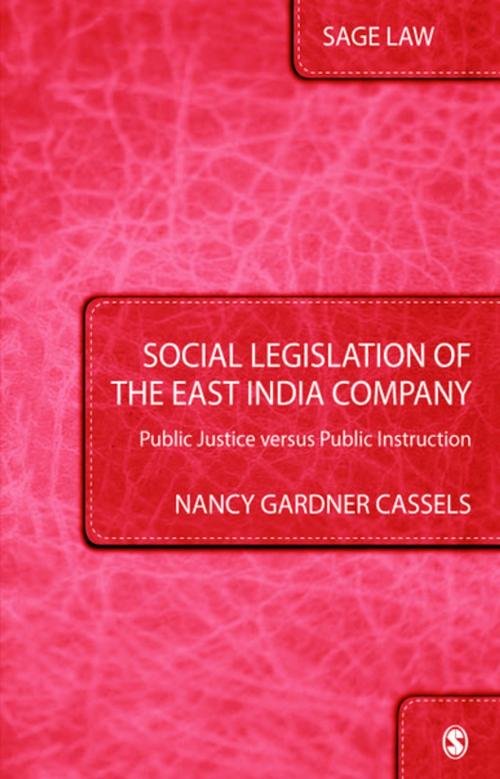Social Legislation of the East India Company
Public Justice versus Public Instruction
Nonfiction, History, Asian, India| Author: | Nancy Gardner Cassels | ISBN: | 9789351509462 |
| Publisher: | SAGE Publications | Publication: | December 14, 2010 |
| Imprint: | Sage Publications Pvt. Ltd | Language: | English |
| Author: | Nancy Gardner Cassels |
| ISBN: | 9789351509462 |
| Publisher: | SAGE Publications |
| Publication: | December 14, 2010 |
| Imprint: | Sage Publications Pvt. Ltd |
| Language: | English |
A hitherto unattempted survey of social legislation by the East India Company, this book identifies the principles of Public Justice and Public Instruction as the inspiration for legislative decisions, some of which resonate in post-colonial India. It dwells particularly on legislation which manipulated Muslim criminal law in order to protect, and in some instances, create, the rights of women, slaves, bonded labourers and victims of crime. It also examines the Company's cautious venture into the realm of civil law affecting the ideals of religious toleration, remarriage of Hindu widows as well as inheritance and property law. Finally, it considers excise as a regulatory instrument in the Company's administration of Pilgrim Taxes and Abkarry revenue from liquor and opium.
The book traces the journey of the small group of merchants, who initially formed the East India Company, and while enviously guarding their sometimes piratical commercial interests, actually became a burgeoning nation state. It shows how...
A hitherto unattempted survey of social legislation by the East India Company, this book identifies the principles of Public Justice and Public Instruction as the inspiration for legislative decisions, some of which resonate in post-colonial India. It dwells particularly on legislation which manipulated Muslim criminal law in order to protect, and in some instances, create, the rights of women, slaves, bonded labourers and victims of crime. It also examines the Company's cautious venture into the realm of civil law affecting the ideals of religious toleration, remarriage of Hindu widows as well as inheritance and property law. Finally, it considers excise as a regulatory instrument in the Company's administration of Pilgrim Taxes and Abkarry revenue from liquor and opium.
The book traces the journey of the small group of merchants, who initially formed the East India Company, and while enviously guarding their sometimes piratical commercial interests, actually became a burgeoning nation state. It shows how...















